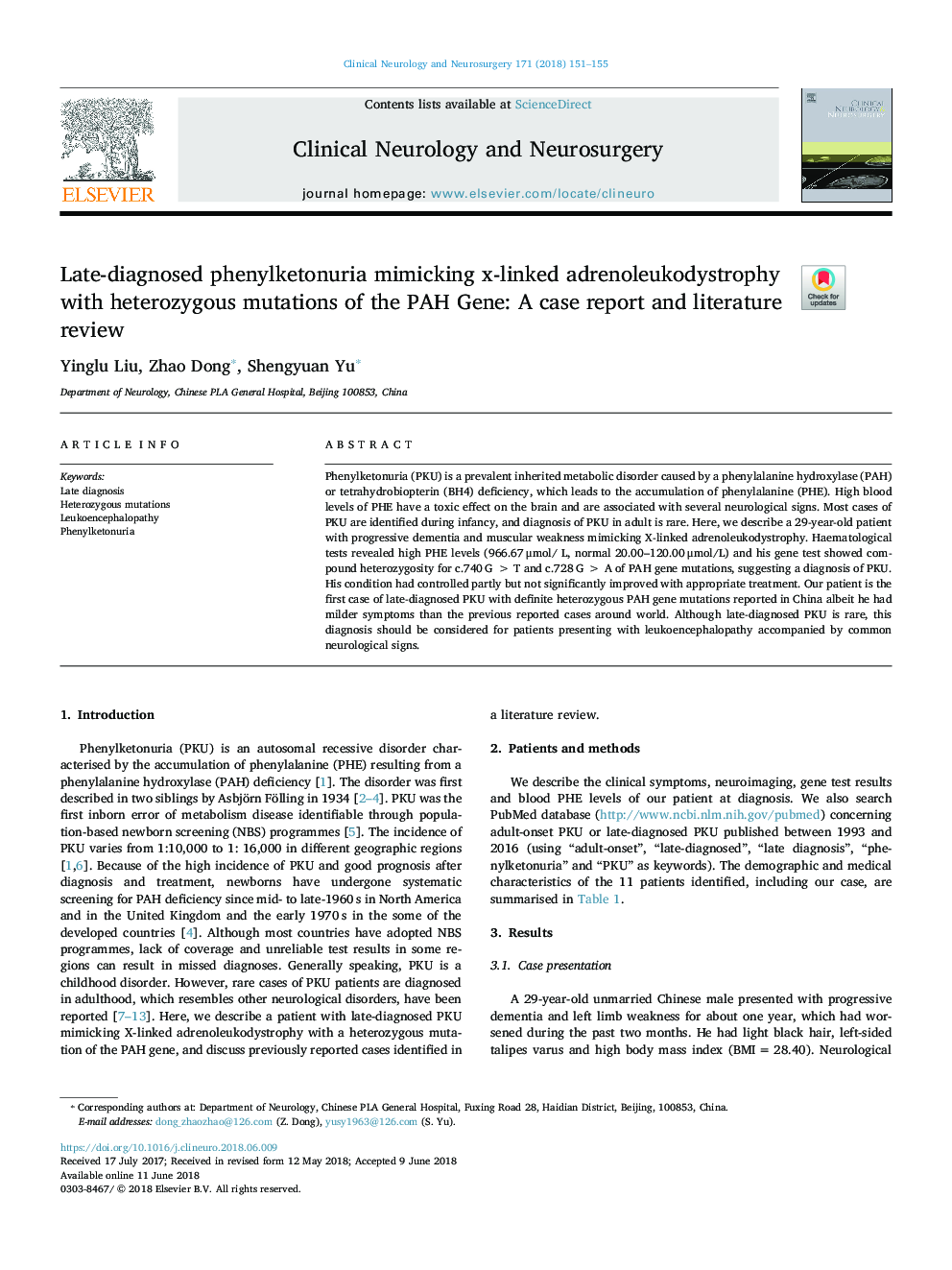| Article ID | Journal | Published Year | Pages | File Type |
|---|---|---|---|---|
| 8681698 | Clinical Neurology and Neurosurgery | 2018 | 5 Pages |
Abstract
Phenylketonuria (PKU) is a prevalent inherited metabolic disorder caused by a phenylalanine hydroxylase (PAH) or tetrahydrobiopterin (BH4) deficiency, which leads to the accumulation of phenylalanine (PHE). High blood levels of PHE have a toxic effect on the brain and are associated with several neurological signs. Most cases of PKU are identified during infancy, and diagnosis of PKU in adult is rare. Here, we describe a 29-year-old patient with progressive dementia and muscular weakness mimicking X-linked adrenoleukodystrophy. Haematological tests revealed high PHE levels (966.67â¯Î¼mol/ L, normal 20.00-120.00â¯Î¼mol/L) and his gene test showed compound heterozygosity for c.740â¯Gâ¯>â¯T and c.728â¯Gâ¯>â¯A of PAH gene mutations, suggesting a diagnosis of PKU. His condition had controlled partly but not significantly improved with appropriate treatment. Our patient is the first case of late-diagnosed PKU with definite heterozygous PAH gene mutations reported in China albeit he had milder symptoms than the previous reported cases around world. Although late-diagnosed PKU is rare, this diagnosis should be considered for patients presenting with leukoencephalopathy accompanied by common neurological signs.
Related Topics
Life Sciences
Neuroscience
Neurology
Authors
Yinglu Liu, Zhao Dong, Shengyuan Yu,
